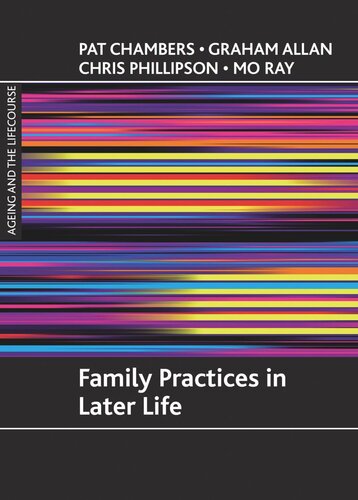

Most ebook files are in PDF format, so you can easily read them using various software such as Foxit Reader or directly on the Google Chrome browser.
Some ebook files are released by publishers in other formats such as .awz, .mobi, .epub, .fb2, etc. You may need to install specific software to read these formats on mobile/PC, such as Calibre.
Please read the tutorial at this link: https://ebookbell.com/faq
We offer FREE conversion to the popular formats you request; however, this may take some time. Therefore, right after payment, please email us, and we will try to provide the service as quickly as possible.
For some exceptional file formats or broken links (if any), please refrain from opening any disputes. Instead, email us first, and we will try to assist within a maximum of 6 hours.
EbookBell Team

4.0
46 reviewsThere is no shortage of political and moral commentary on family life. Frequently the underlying theme of these commentaries is the decline of contemporary family commitment, particularly when older people's family experiences are the focus. Family Practices in Later Life challenges many common stereotypes about the nature of family involvement as people age. The book explores diversity and change in the family relationships older people maintain, looking at how family relationships are constructed and organised in later life. It recognises that the emerging patterns are a consequence of the choices and decisions negotiated within family networks, emphasising older people's agency in the construction of their family practices. In exploring such themes as long-term marriage, sibling ties in later life and grandparenthood, the book highlights the continued significance of family connection and solidarity in later life, while recognizing that family relationships are inevitably modified over time as people's social and material circumstances alter. Family Practices in Later Life will be of interest to students, researchers and academics in the fields of social policy, family studies and social gerontology. It provides a valuable contribution to the developing field of critical social gerontology as well as to an understanding of family process.